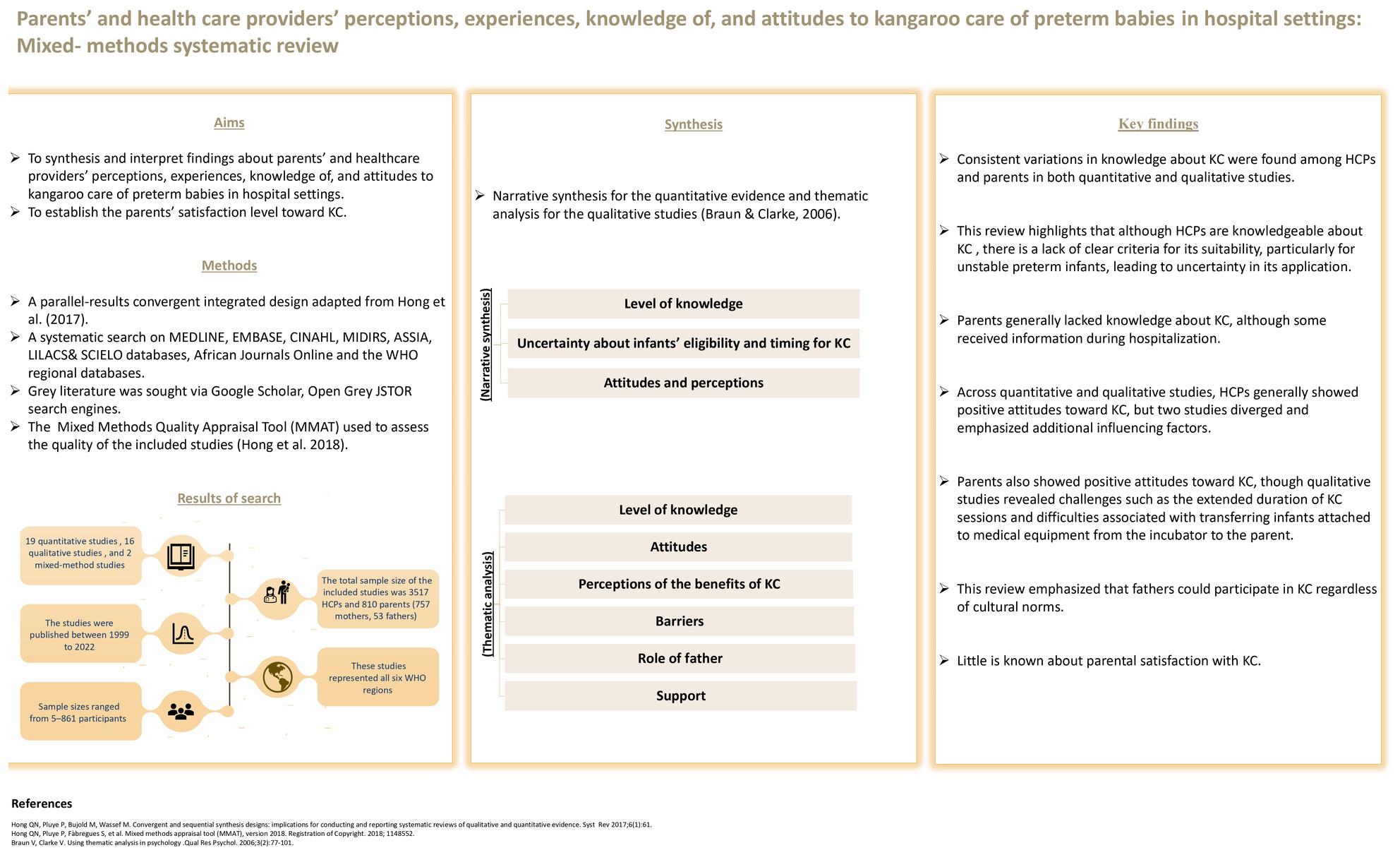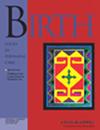Kangaroo care is an effective intervention to increase survival and improve the health and development of preterm infants. Despite this, implementation of kangaroo care globally remains low. The objectives of this review were to: (a) synthesize evidence on parents' and healthcare practitioners' perceptions, experiences, knowledge of, and attitudes toward kangaroo care of preterm babies in hospital settings; and (b) establish parents' satisfaction with kangaroo care.
Studies of any design were included if they focused on parents' or healthcare practitioners' perceptions, experiences, knowledge of, and attitudes to kangaroo care of preterm babies, or reported parents' satisfaction, and were conducted in hospital settings. The search of seven electronic databases, African Journals Online, World Health Organization regional databases, and a gray literature search was conducted in April/May 2020, and updated in January 2024. Study selection was undertaken by two independent reviewers. Quality assessment using the Mixed Method Appraisal Tool and data extraction were completed by one reviewer with a 10% check by a second reviewer. Data were synthesized narratively using a parallel results convergent integrated design.
Thirty-seven studies, 19 quantitative, 16 qualitative, and 2 mixed methods, were included. The findings suggested that while healthcare practitioners generally demonstrated knowledge about kangaroo care, there was a notable minority with insufficient understanding among those who received training. Parents' knowledge, particularly among fathers, was limited. Both healthcare practitioners and parents appeared to have positive attitudes to kangaroo care. Little is known about parental satisfaction with kangaroo care.
Most healthcare practitioners were knowledgeable about kangaroo care, but parents had limited knowledge. This review findings suggest a need to enhance parental knowledge of kangaroo care before neonatal unit admission, and training is needed for HCPs to implement kangaroo care consistently.




